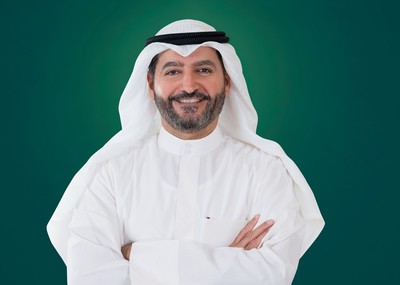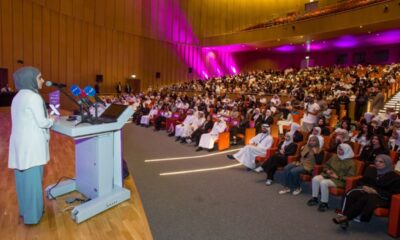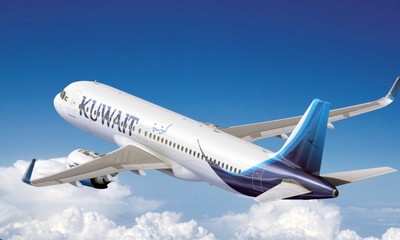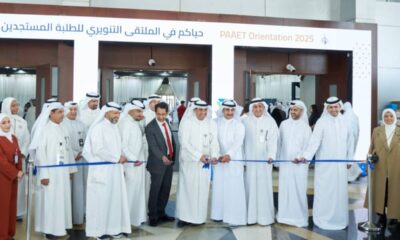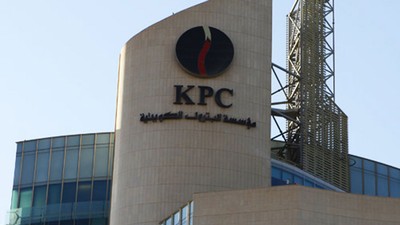KUWAIT CITY, Jul 29: Chairman of Kuwait Finance House (KFH) Hamad Abdulmohsen Al-Marzouq announced that KFH achieved a net profit of KD 342.1 million for the first half of 2025 for the Bank shareholders. Earnings per share for the first half of 2025 reached 19.23 fils.
Net financing income for the first half of the year reached KD 607.3 million; an increase of 8.7 % compared to the same period last year.
Total operating income for the first half of 2025 increased, supported by the increase in all core activities to reach KD 876 million; an increase of 6.4 % compared to the same period last year. This growth is particularly notable given that the comparative income for 2024 included profits of KD 70.1 million from the sale of KFH-Bahrain during Q2 2024.
Net operating income for the first half of the year reached KD 566.7 million; an increase of 7.9 % compared to the same period last year.
The cost-to-income ratio for H1-25 improved to 35.3% compared to 36.2% for the same period last year.
Financing receivables at the end of the first half of 2025 reached KD 20.4 billion, an increase of 7.1 % compared to the end of last year.
Total assets at the end of the first half of 2025 amounted to KD 38.5 billion, an increase of 4.9% compared to the end of last year.
Shareholders’ equity for the same period amounted to about KD 5.6 billion, an increase of 0.8% compared to the end of last year.
Depositors’ accounts for the first half of 2025 amounted to KD 19.7 billion, an increase of 2.7% compared to the end of last year.
In addition, the capital adequacy ratio reached 18.01 % which is above the limit required by regulators. This ratio confirms the solid capital base of KFH.
The Board of Directors has agreed to distribute a semi-annual cash dividend of 10 fils per share.
Outstanding performance
In a press release, Al-Marzouq said that KFH continues to lead the banking sector and the Kuwaiti market in profitability. This remarkable achievement comes despite the challenging operating environment and geopolitical shifts in the region, which have brought uncertainty to the economic landscape. He emphasized that KFH’s success stems from precisely implemented plans that ensure sustainable profits and maintain KFH’s solid financial position and robust performance.
Al-Marzouq also highlighted the strength of KFH’s financial statements for the first half of this year, which showcase a strong capital base, good liquidity ratios, and exceptional operational performance. These factors have collectively driven sustainable growth across all key financial indicators.
Operational efficiency
Al-Marzouq emphasized that KFH continues to boost its operational efficiency, increase revenues, and optimally use its capabilities in line with global standards. This approach will improve asset quality, enhance risk management, and help the bank rationalize expenses, especially as it navigates the current global financial landscape and the competitive financial services industry.
Coordination and integration
He added that KFH is working to achieve great ambitions by maximizing the effectiveness of the Group’s banks and fostering seamless coordination and integration among. This approach guarantees increased revenues and improved performance, while also leveraging the unique potential and advantages of each market.
New chapter
Al-Mazrouq said that KFH successfully launched the new visual identity for Ahli United Bank – Bahrain, rebranding it as Kuwait Finance House – Bahrain. This move complements a series of achievements realized under the new brand slogan, “Beyond Horizons”. He explained that this series began in Kuwait, subsequently extending to the United Kingdom and the Arab Republic of Egypt. ”This initiative is part of KFH’s strategy for expansion and global leadership as an Islamic banking group.” He emphasized that the new brand launch reflects a shift in vision and concept, marking the beginning of a new chapter of integration and excellence in banking services.
Financing and Development
Al-Marzouq highlighted KFH’s continued dedication and ability to fund large-scale projects in all sectors, including production, service, commercial, and development. By offering a diverse range of financing services and solutions, KFH actively supports the government’s comprehensive development plans.
He highlighted the bank’s strengths, which position it as one of the most trusted and preferred institutions for corporate financing. KFH also enjoys a substantial market share in financing small and medium-sized enterprises (SMEs) within Kuwait’s banking sector. Furthermore, the bank is keen to fund numerous large-scale projects, utilizing flexible and efficient Sharia-compliant financing structures. This has established KFH as the preferred partner and lead arranger for many major joint financing deals.
Training and promotion
Al-Marzouq said that KFH is steadfast in its commitment to nurturing national talent and developing future leaders. Through ongoing training and development programs, partnered with local institutions, universities, and international centers, the bank aims for peak operational efficiency and productivity. This dedication recently saw several national employees advance to senior leadership roles across various departments.
CSR & Sustainability
Al-Marzouq noted that KFH’s social impact grew significantly last year, thanks to its involvement in many key strategic social initiatives. These efforts highlight the crucial role KFH plays in society, alongside its leading position in the economic, developmental, and banking sectors.
He highlighted how KFH has created a pioneering and role model for embedding sustainability principles across its entire group. ”KFH has seen remarkable success in green financing and implementing a comprehensive sustainability strategy that’s central to its mission and vision. The bank is further strengthening its commitment by adopting integrated, comprehensive, and balanced practices in the key areas of sustainability: environmental, social, and governance (ESG).”
Al-Marzouq explained that KFH was the first entity to start publishing impact measurement reports, and it annually releases both a Sustainability Report and a Carbon Footprint Report. KFH has been awarded an “A” rating by MSCI. Additionally, KFH has been included in the FTSE4Good Index Series for its exemplary performance in environmental, social, and governance (ESG) practices.
Sound financial indicators
Meanwhile, KFH Group CEO, Khaled Yousef Al-Shamlan, said that the bank’s H1 2025 profits confirms its robust operational performance and leading position in the Kuwaiti banking sector. He noted that the financial performance for this period reflects prudent strategies and effective policies that consistently yield sustainable profits, solid financial position, asset quality, and good indicators for operating income, cost to income ratios as well as liquidity ratios, and capital adequacy.
Global leadership
AlShamlan said that ”KFH ranked first as the best-performing bank in Kuwait, according to The Banker magazine’s 2025 ranking of the top 1,000 global banks. KFH has maintained its position as Kuwait’s largest listed company, in Forbes’ Global 2000 list for the largest public companies in the world, reinforcing its standing using four metrics, revenues, profits, assets and market value.”
He pointed out that KFH has won numerous international awards, including ”The Middle East’s Best Islamic Bank” and “Kuwait’s Best Bank” from Euromoney. KFH was also named “Best Bank for Financial Institutions in the Middle East for 2025” by Global Finance, in recognition of its excellence and distinction in banking.
Growing market share
AlShamlan emphasized KFH’s ongoing drive to boost market share by offering competitive products, services, and cutting-edge financing solutions, such as Financing Against Gold Account Collateral.
He also highlighted the continuous effort to strengthen KFH’s presence in international markets, improve coordination among the Group’s banks, and enhance customer service through the KFH Group Service Center. Currently, this center supports KFH-Turkey and KFH-Egypt, with plans to extend its services to other Group banks in the coming period.
AlShamlan attributed the bank’s sustained leadership to its vast experience and large customer base, which collectively reinforce its competitive edge and brand strength.
Digitalization and innovation
AlShamlan also noted that KFH continues to lead digital innovation in banking, offering diverse digital services and solutions to elevate customer experience. He added that KFH launched (Fahad), Kuwait’s first virtual assistant employee powered by artificial intelligence. This coincides with a comprehensive update and redesign of the KFHOnline app, now offering over 200 digital banking services to meet high customer demand. KFH also introduced the KFH Virtual Rewards Prepaid Card as a unique payment experience, alongside updated customer software. Additionally, a new, secure, and easy payment service for businesses was rolled out, transforming mobile phones into point-of-sale devices for accepting payments via debit cards and digital wallets.
He noted that KFH’s successful digital transformation showcased the bank and its employees’ capabilities to harness global technological advancements and apply them to customer service through innovative approaches and creative efforts. He stressed that customers are the top priority, and their satisfaction is key to achieving the bank’s strategic goals.

 Politics23 hours ago
Politics23 hours ago
 Latest News24 hours ago
Latest News24 hours ago
 Latest News22 hours ago
Latest News22 hours ago
 Politics14 hours ago
Politics14 hours ago
 Politics13 hours ago
Politics13 hours ago
 Politics9 hours ago
Politics9 hours ago
 Business14 hours ago
Business14 hours ago
 Latest News13 hours ago
Latest News13 hours ago
